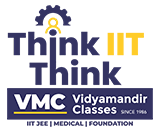Revolutionizing Medical Education in India: Government Ratings for Colleges!
 Posted On
Posted On
164 total views, 2 views today
In a groundbreaking move, the National Medical Commission (NMC) of India, the apex medical education regulator, has joined forces with the Quality Council of India (QCI) to introduce government ratings for medical colleges across the country. This initiative, established under the “Establishment of Medical Institutions, Assessment and Rating Regulations, 2023,” aims to evaluate the quality of education provided by medical colleges and address concerns regarding the credibility of private institutions. By bringing transparency, accountability, and adherence to high standards in the medical education ecosystem, these ratings will not only aid students in selecting the right institution but also curb the exploitation of students through exorbitant fees.
Enhancing Transparency and Accountability
Private medical colleges in India have faced credibility issues due to the reliance on ratings conducted by private organizations. The collaboration between the NMC and QCI seeks to overcome this challenge by introducing a government-led assessment process. As part of the collaboration, the Medical Assessment and Rating Board (MARB) of the NMC and QCI will evaluate medical schools, both government and private, independently. This step will ensure that medical colleges adhere to government regulations, offer quality education, and maintain high standards.
Inspections to Uphold Standards
To maintain the highest quality of medical education and services, experts from the NMC and QCI will conduct surprise inspections at medical colleges across the country. These inspections will evaluate whether the colleges comply with government regulations, follow prescribed standards, and provide an optimal learning environment for students. By carrying out these assessments, the NMC aims to establish a comprehensive ranking system for medical colleges that reflects the quality of education and the commitment of institutions towards their students.
Empowering Students’ Choice
The introduction of government ratings for medical colleges will greatly assist students in making informed decisions about their educational journey. Until now, the All India Institute of Medical Sciences (AIIMS) has been renowned for its world-class medical education, but the private sector has made multiple claims about being top medical colleges. With the new rating system, students can rely on the transparency and credibility of government assessments to evaluate and compare different medical colleges. This empowerment will enable them to select institutions that align with their academic goals and aspirations.
Promoting Quality Education
The collaboration between the NMC and QCI marks a significant milestone in the history of medical education in India. The establishment of an assessment process for medical colleges demonstrates the government’s commitment to fostering excellence in the field. As the number of medical colleges in India has seen a significant increase, rising from 387 before 2014 to 704 at present, it becomes crucial to maintain and enhance the quality of education across these institutions. The government ratings will act as a catalyst for promoting a culture of continuous improvement, as medical colleges will strive to achieve higher ratings and improve their educational standards.
Final Thoughts
The introduction of government ratings for medical colleges in India signifies a significant step towards ensuring the delivery of high-quality medical education. By collaborating with the QCI, the NMC aims to establish an assessment process that brings transparency, accountability, and adherence to standards within the medical education ecosystem. This initiative will empower students to make informed choices, encourage medical colleges to maintain high standards, and curb exploitative practices. As the medical education landscape evolves, these government ratings will play a pivotal role in shaping the future of medical education in India.


